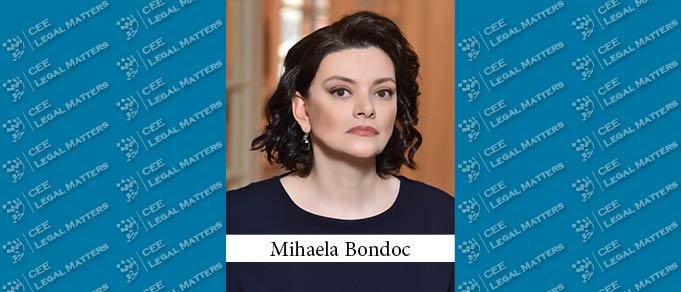The COVID-19 pandemic has brought a lot of practical and legislative changes. Still, even if the virus complicated the overall environment (to which other factors contributed, such as elections followed by a change of government), Romania remains a place with significant business opportunities.
Some Recent Numbers. IMF estimates an economic growth of no less than 6% for Romania in 2021. Romania had the most dynamic EU economy in the first quarter of this year, with growth of 2.8% in GDP from the last quarter of last year. Based on 2019 data, showing per capita income of USD 12,630, the World Bank classified Romania as a high-income country for the first time, which plays a major role in investment rating decisions.
Some Underlying Advantages to Consider. Romania has a number of advantages that should allow the country to continue to grow at a rate faster than most EU countries, including:
1. A favorable geographical location, from many perspectives, which is likely to attract increased interest, especially in the context of expected changes in production and logistical chains worldwide.
2. A still-relatively cheap labor force compared to many other countries in Europe. The post-pandemic environment and geopolitical developments should help Romania keep investments and more easily attract new ones.
3. An increasing interest in financing projects. Romania was assigned a Secondary Emerging market status in the FTSE Global Equity Index Series semi-annual review in September 2020. The promotion to Emerging Market status is expected to allow the Romanian capital market and economy to absorb new funds in the coming years, while sending a strong signal to privately-owned and state-owned companies that they can significantly grow via the stock market. Large investment funds will be able to invest in Romanian companies listed on the Bucharest Stock Exchange. At the same time, of course, this should increase the visibility of the stock exchange, and of locally listed companies.
4. Good positioning in terms of energy reserves and potential. The European Green Deal is putting pressure on the local oil and gas sector, and significant investments in innovation and modern technologies are required for the industry. However, some of the traditional sources, especially gas, are expected overall to develop. In the government’s Energy Strategy for 2016-2030, the development of infrastructure and the securing of Romania’s oil and gas deposits were identified as strategic areas for intervention. With infrastructure investments and the development of market mechanisms, Romania can become a major European LNG supplier and transport hub.
5. Good positioning for most strategic areas of interest for the EU in the years to come, including: (i) an IT&C sector with significant potential, with numerous start-ups and venture capital investment funds targeting this area; (ii) Renewable Energies (the renewable sector has been affected for some years by significant legislative changes to the support schemes, but it is growing again and has seen a plethora of investments lately); and (iii) Bio-Agriculture.
Romania certainly has a number of areas lagging behind, including transportation infrastructure, public administration, and the waste management, energy, and healthcare systems. However, the right reforms and financing should allow for significant efficiencies and synergies in these areas over the next decade.
There are, ultimately, numerous and significant financing opportunities in the years to come, including, perhaps most significantly, additional access to EU funds, as an infusion of almost EUR 80 billion in the Romanian economy is expected in the next (approximately) four to five years in the context of the EU Recovery Plan.
All of this will also naturally involve substantial legislative dynamics, however, this is part of what we do. All in all, there are many reasons to regard the upcoming years with optimism, and we are confident that many of the opportunities above will materialize in significant progress in many sectors and for many investors.
By Mihaela Bondoc, Partner, Bondoc si Asociatii
This Article was originally published in Issue 8.5 of the CEE Legal Matters Magazine. If you would like to receive a hard copy of the magazine, you can subscribe here.



